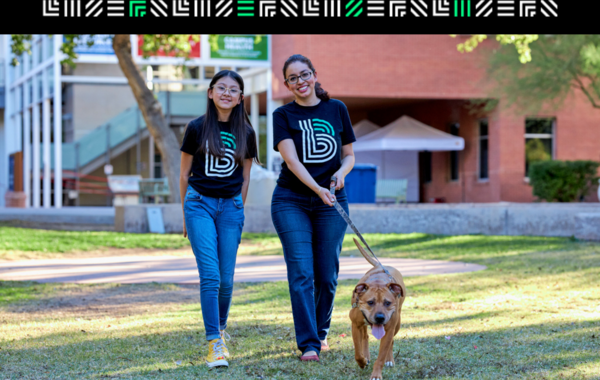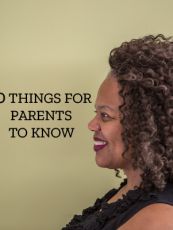
How BBBSEM is Celebrating Hispanic Heritage Month
Big-Little Matches and Staff Members Celebrate National Hispanic Heritage Month
Big Brothers Big Sisters of Eastern Massachusetts is Seeking More Spanish-Speaking Mentors
October 15th marks the final day of National Hispanic Heritage Month. Over the past four weeks, Big Brothers Big Sisters of Eastern Massachusetts has helped staff members internally and Big-Little matches externally to celebrate the agency’s Spanish-speaking community and learn more about the Hispanic/Latinx cultures.
In September, the nonprofit hosted a “Snacktivity” in which Big Brothers Big Sisters of Eastern Massachusetts staff members learned two new Cuban recipes – Cassava Bread and Morir Soñando – and talked about the history of each. Later in the month, the organization is hosting a Lunch and Learn during which employees participated in an in-depth conversation about colorism in relation to Hispanic/Latinx communities to help better understand some of the additional struggles many of the agency’s Littles and their families continue to face every day.
“Our mission inherently seeks to address the systemic inequalities in our society as we exist to defend the potential of youth of all backgrounds,” says Mark O’Donnell, President & CEO of Big Brothers Big Sisters of Eastern Massachusetts. “However, we know we cannot rest on the strength of interpersonal relationships alone to resolve systemic oppression and bigotry. To best serve kids, we need to broaden our perspectives and understand their paths.”
Baking a traditional dish, learning to salsa and viewing paintings by Hispanic artists at one of Boston’s beloved art museums are all ways in which Bigs are helping Littles to embrace their roots. Big Brothers Big Sisters of Eastern Massachusetts serves as a consistent resource for Bigs, Littles and their families. Spanish-speaking staff members and interpreters work one-on-one with Spanish-speaking families to ensure effective communication, preferences, culture and understanding between matches.
The coronavirus pandemic changed the way kids live, learn and play, disproportionately impacting Hispanic and Latinx households statewide. To meet the increased demand from families, Big Brothers Big Sisters of Eastern Massachusetts is currently seeking more Spanish-speaking volunteers to serve as caring adult mentors for children across the region.
Currently, 566 mentees, referred to as Little Brothers and Little Sisters, who identify as Hispanic and Latinx are enrolled in the agency’s one-to-one youth mentoring programs. However, only 107 adult volunteer mentors, referred to as Big Brothers and Big Sisters, speak their first language at home, Spanish. In an effort to match youth with adults with common backgrounds, interests and personalities, Nick Ramos, the agency’s Head of People and Culture, is calling for more mentors to help teach, embrace, and celebrate their Hispanic heritage.
“Now more than ever, children and teens are struggling with their mental health and academic success as a result of the COVID-19 crisis,” says Ramos. “Mentors help youth navigate learning and social-emotional challenges and empower them to reach their fullest potential. We have many Spanish-speaking Littles waiting to be matched. The more Spanish-speaking Bigs we have, the more families we can serve.”
During the COVID-19 crisis, matches are maintaining relationships, leveraging the nonprofit’s online resources as social distancing has kept them from consistently meeting in-person. Currently, community-based matches are meeting in-person and socially distant only when the Big, Little, and guardian are all comfortable while adhering to CDC guidelines. Since March 2020, nearly 800 new matches have been made virtually.
“No matter how society shifts, children will always need guidance from caring adult mentors,” says Ramos, who organizes internal trainings and awareness-building activities for the agency’s internal Diversity, Equity and Inclusion committees. “Families have enough to worry about during the pandemic, like school closures, childcare, food access and employment. We want to ensure our adult mentors remain a constant and accessible resource for youth who may feel a greater sense of instability right now.”
Anyone can become a Big as the agency welcomes youth and adults of all races, ethnicities, cultures, socio-economic backgrounds, genders, sexual orientations, and physical abilities. Volunteers must be 18 years old or older, be able to commit a few hours, a couple times a month for at least a year and have a passion for positively impacting a young person’s life.
In its 70th year, Big Brothers Big Sisters of Eastern Massachusetts, the largest Big Brothers Big Sisters affiliate in New England, has created and served more than 20,000 matches. The nonprofit is now enrolling and matching Littles and Bigs virtually. For more information, to become a volunteer or to register their children, your audience can visit: www.emassbigs.org.
Children s safety is our number one priority; throughout the duration of the match, not just the beginning!
